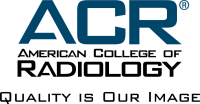The Lung Cancer Institute
The Lung Cancer Institute at Cooperman Barnabas Medical Center in Livingston, NJ is committed to partnering with patients by offering lung cancer education, screening, diagnostic tools and treatment options. We are dedicated to providing quality care and achieving the highest level of patient satisfaction.
Lung Cancer Treatment Options
At the Lung Cancer Institute, conveniently located in Essex County, New Jersey, we provide a multidisciplinary, collaborative approach to lung cancer care. Our team of lung cancer specialists has experience in treating both early-stage and complex cases of lung cancer. Our goal is to provide each patient with a personalized treatment plan that matches their needs, and offers the lowest risk and highest chance of cure.
We hold bi-weekly conferences to review cases and discuss optimal treatment options for our patients with lung cancer. This conference helps ensure that all of the lung cancer specialists provide lung cancer treatment options that are tailored to the needs of each individual patient.
Our integrated treatment programs offer comprehensive care, which may include:
- Surgery. During surgery, the lung cancer and a margin of healthy tissue are removed. In some cases, lymph nodes from the chest may also be removed to check them for signs of cancer.
- Chemotherapy. Chemotherapy uses drugs to kill cancer cells. These drugs may be given through a vein in the arm or taken orally. Typically, a combination of drugs is given in a series of treatments over a period or weeks or months, with breaks in between.
- Radiation therapy. This uses high-powered energy beams to kill cancer cells. Radiation therapy can be directed at the lung cancer from outside the body in a procedure called external beam radiation. Alternatively, radiation therapy can be put inside needles, seeds or catheters and placed inside your body close to the cancer. This is called brachytherapy. Radiation therapy may be used after surgery to kill any remaining cancer cells, or it may be used as the first treatment option for lung cancers that can’t be removed with surgery. In advanced lung cancer, radiation therapy may be used to relieve pain and other symptoms.
- Targeted drug therapy. This term refers to newer cancer treatments that work by targeting specific abnormalities in cancer cells. Some targeted therapies only work in people whose cancer cells have certain genetic mutations. Targeted therapies are often in combination with chemotherapy drugs.
- Genetic counseling. The Cancer Genetic Counseling Program can help patients learn more about their own cancer risks and that of their family members, as well as what options are available to help to reduce the risk of developing cancer. It also offers the opportunity for genetic testing when appropriate.
- Psychosocial support. The Cancer Center offers services designed to help patients and their loved ones cope with a cancer diagnosis and treatment, including individual, family and group counseling; support groups; nutritional counseling, art therapy programs, boutique services including wigs and mastectomy accessories; stress management services offered by certified holistic nurses; and pastoral care.
If you have been diagnosed with lung cancer, you and your doctor will work together to choose the lung cancer treatment options that are right for you based on several factors, such as your overall health, the type and stage of your cancer, and your personal preferences.
Free Lung Cancer Screening for Eligible Patients
The Lung Cancer Institute at Cooperman Barnabas Medical Center in Livingston, NJ has joined the International Early Lung Cancer Action Program to offer a free, life-saving test for early detection of lung cancer. The free program includes low-dose CT screening for individuals who are at high risk for developing lung cancer.
Eligible patients include:
- Ages 50 to 80
- Current smoker or one who has quit in last 15 years
-
Tobacco history of 20 pack years*
*pack years = your average number of packs X number of years smoked
Example: 1 pack a day X 20 years = 20 pack years

If you have a patient in New Jersey who may be at risk, please have them contact the Lung Cancer Institute at 973-322-6644 for more information or to schedule a free lung cancer screening.
